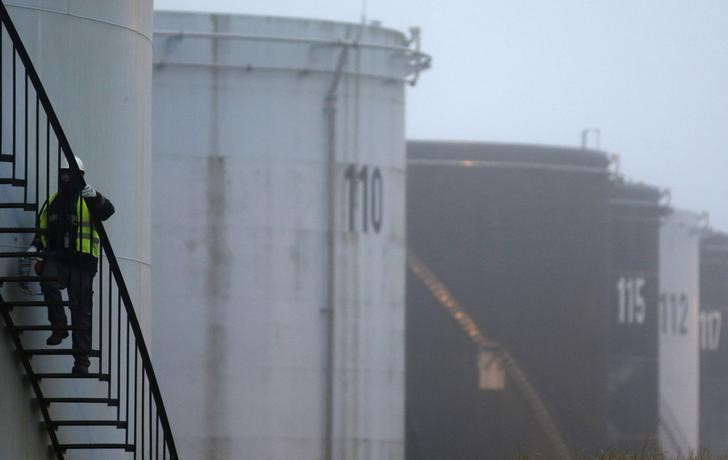
Investing.com — Oil prices rose Thursday, extending gains from the prior session on the back of benign inflation as well as an unexpected draw in U.S. gasoline inventories, which helped spur some confidence in future demand.
At 08:50 ET (12:50 GMT), rose 0.9% to $72.77 a barrel, while rose 0.9% to $69.20 a barrel.
US gasoline stockpiles see big draw
Government data, released on Wednesday, showed that U.S. shrank by 0.5 million barrels (mb) in the past week, compared to expectations for a build of 1.5 mb.
Gasoline inventories in particular saw a large draw, at 2.7 mb, compared to estimates for a 0.6 mb build.
The reading spurred some hopes that oil markets in the world’s biggest fuel consumer remained tight, and that fuel demand would still be robust even as the winter period draws near.
Helping the tone was the news that an inflation metric closely-monitored by the Federal Reserve slowed as expected in the year to September, potentially bolstering the case for the central bank to slash interest rates again this year.
The decelerated to a 2.1% annual increase during the month, cooling from an upwardly-revised reading of 2.3% in August.
Lower interest rates are expected to boost economic activity in the largest economy in the world, potentially boosted demand fro crude.
OPEC+ could delay December production hike – Reuters
Additionally, Reuters reported that OPEC+ could delay plans to begin increasing production from December by a month or more, amid concerns over weak demand and high supply.
The Organization of Petroleum Exporting Countries and allies, known as OPEC+, had delayed plans to increase production by 180,000 barrels per day (bpd) to December from October due to falling oil prices, as concerns over slowing growth in China and easing fears of the Middle East war battered oil markets.
The cartel had also cut its outlook for demand growth for 2024 and 2025, citing weakness in China.
The OPEC+ cut output by about 5.86 million bpd over the past two years to support oil prices, and had flagged plans to begin increasing output from late-2024.
The Reuters report helped lift oil prices on Wednesday, although they were still nursing steep losses from earlier in the week. Brent was also trading just a few dollars above its 2024 lows, which it had hit in September.
(Ambar Warrick contributed to this article.)

